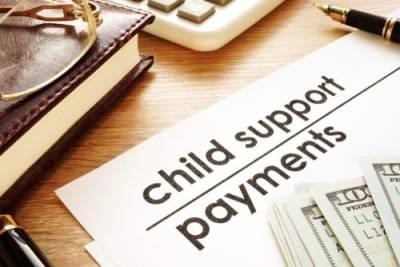Recent Blog Posts
How Can I Increase My Chance of Getting Custody in Illinois?
 In an Illinois divorce or divorce decree modification, courts are primarily concerned with discovering one thing: What is in the best interests of the child? A judge’s decision regarding the allocation of parental responsibilities (formerly known as “custody”) will take many factors into consideration.
In an Illinois divorce or divorce decree modification, courts are primarily concerned with discovering one thing: What is in the best interests of the child? A judge’s decision regarding the allocation of parental responsibilities (formerly known as “custody”) will take many factors into consideration.
Understanding the things judges look for in potential custodial parents can help increase your chances of being given those responsibilities and spending valuable time with your child. Here, we will explore some of those factors in detail:
- The Ability and Willingness to Work with Your Co-Parent – Research shows that children do best when both parents are involved in their lives. However, if one parent is particularly combative, a judge may limit the child’s time with that parent in order to minimize the child’s exposure to conflict.
What Happens to the Family Home in an Illinois Divorce?
 Married spouses and any children they have typically live in the same home. During and after divorce, spouses in Illinois are unlikely to want to remain under the same roof long-term but may feel uncertain about who, if anyone, will continue to live in the family home. Spouses can feel an emotional attachment to their home, especially if it has been inherited from cherished family members, and parents may have concerns about the destabilizing impact of moving to a new home on their children.
Married spouses and any children they have typically live in the same home. During and after divorce, spouses in Illinois are unlikely to want to remain under the same roof long-term but may feel uncertain about who, if anyone, will continue to live in the family home. Spouses can feel an emotional attachment to their home, especially if it has been inherited from cherished family members, and parents may have concerns about the destabilizing impact of moving to a new home on their children.
Determining Ownership
Whether one spouse owned the home before the marriage or whether the spouses bought a new home together will impact the way the marital home will be handled in the event of a divorce. Illinois law says that assets owned by either spouse prior to entering the marriage are usually considered individual property in the event of a divorce.
Large appliances and cars with your name on the title are fairly easy to distribute, as their ownership is clear. But homes are more complex, especially because spouses make mortgage payments and do not usually own them outright during the marriage.
Tips for Making Your Illinois Divorce Process Move Faster
 No matter how amicable your divorce may be, the process of getting divorced is unpleasant. Very few divorce cases are resolved quickly, and in the most complex or high-conflict cases, divorces can drag on for years. A protracted divorce in Illinois will take its toll on everyone and everything involved – spouses, children, relatives, bank accounts.
No matter how amicable your divorce may be, the process of getting divorced is unpleasant. Very few divorce cases are resolved quickly, and in the most complex or high-conflict cases, divorces can drag on for years. A protracted divorce in Illinois will take its toll on everyone and everything involved – spouses, children, relatives, bank accounts.
Some things are out of your control during divorce: You may have to wait longer than you want for a court appointment to be available, or for the discovery process to finish. Fortunately, you are not totally helpless when it comes to speeding up the process. Here are a few things you can do to make your divorce move more quickly.
Reach Agreement Before the Divorce Begins
Illinois is a no-fault divorce state, meaning that a couple only needs to cite irreconcilable differences as grounds for divorce. But if one spouse denies that there are irreconcilable differences, or does not agree that a divorce is necessary, there is a mandatory six-month waiting period of living “separate and apart.” In order to bypass this six-month waiting period, both spouses must agree to get divorced. Try to talk to your partner and reach an agreement that divorce is in your best interests before either party begins divorce proceedings.
Factors to Consider When Choosing an Egg Donor
 When a couple is growing their family, they often use an egg donor. Whether they are choosing an egg donor for an embryo to be carried by a gestational surrogate or the intended mother herself, there are several factors to consider when choosing the right donor.
When a couple is growing their family, they often use an egg donor. Whether they are choosing an egg donor for an embryo to be carried by a gestational surrogate or the intended mother herself, there are several factors to consider when choosing the right donor.
Choosing an egg donor is an intimately personal experience, and only you can know all of the factors that will contribute towards finding the right fit. Here, we discuss some of the most common issues couples and individuals consider when choosing an egg donor.
Personal and Family Health History
Modern genetic testing shows that certain people are carriers for genetic diseases, or at higher risk of certain types of cancers. Some diseases are more common within populations for whom finding a matching donor is important.
For example, Jewish parents who are looking for an egg donor may prefer a donor who is Jewish herself; however, Tay-Sachs disease is more common in people of Ashkenazi Jewish heritage. Or, an intended parent may be interested in an egg donor whose family history has a high rate of breast cancer. Regardless of the circumstances, parents who are interested in egg donors would be wise to know their own family health and have it available to compare to the family health history of a potential egg donor.
What Can I Do if My Ex is Abusing Our Child?
 It is every parent’s worst nightmare: The person you hoped would share your responsibility in caring and providing for your child may actually be abusing them. It is far easier to recognize and prevent abuse from strangers than from an ex-spouse who has custody of a child, but all the more important to do so because of the important role a parent plays in a child’s development. If you believe your former spouse is abusing or neglecting your child, there are steps you can take to protect your child and ensure the abuse does not carry forward into the future. The strategy you use will depend on your living situation, your custody rights, and how urgent the need is for intervention.
It is every parent’s worst nightmare: The person you hoped would share your responsibility in caring and providing for your child may actually be abusing them. It is far easier to recognize and prevent abuse from strangers than from an ex-spouse who has custody of a child, but all the more important to do so because of the important role a parent plays in a child’s development. If you believe your former spouse is abusing or neglecting your child, there are steps you can take to protect your child and ensure the abuse does not carry forward into the future. The strategy you use will depend on your living situation, your custody rights, and how urgent the need is for intervention.
In an Emergency, Call the Police
If you suspect your child of being in imminent harm or subject to immediate physical abuse, call the police and report the situation immediately. Likewise, if you are the custodial parent of the child and your former spouse has just committed an act of domestic violence against you, call the police and file a report right away.
In Vitro Fertilization vs. Gestational Surrogacy - What’s Right for Me?
 Contemporary medical practice provides couples and individuals in Illinois who are struggling with fertility challenges with several options for growing their families. Those in the midst of considering the various possibilities available to them have to consider several factors, such as the time, potential cost, and third parties that may be involved, like egg donors and gestational surrogates.
Contemporary medical practice provides couples and individuals in Illinois who are struggling with fertility challenges with several options for growing their families. Those in the midst of considering the various possibilities available to them have to consider several factors, such as the time, potential cost, and third parties that may be involved, like egg donors and gestational surrogates.
When you take these together with the emotional impact of making the life-changing decision of having a child, knowing which option to choose can seem difficult and overwhelming. Having a skilled lawyer who knows the intricacies of the law can simplify the process and give you peace of mind while making sure you are aware of your rights and responsibilities under Illinois family law.
Here, we discuss the difference between two of the most common methods of bringing a child into your loving family: In vitro fertilization and gestational surrogacy.
What Are the Legal Responsibilities of a Custodial Parent in Illinois?
 Although parents are typically understood as wanting the best for their children, individual interpretation of what is “best” varies, and parents often disagree. Unfortunately, sometimes parents are accused of being delinquent or neglectful in the care of their children. Illinois law provides a comprehensive listing of parental obligations in caring for children, setting the legal standard for what a child is able to expect of his or her custodial parents.
Although parents are typically understood as wanting the best for their children, individual interpretation of what is “best” varies, and parents often disagree. Unfortunately, sometimes parents are accused of being delinquent or neglectful in the care of their children. Illinois law provides a comprehensive listing of parental obligations in caring for children, setting the legal standard for what a child is able to expect of his or her custodial parents.
These include, but are not limited to:
- A child’s immediate physical needs - This includes providing good nutrition, ensuring the child gets enough sleep, teaching and attending to the child’s hygiene, and caring for the child when he or she is ill or injured.
- A child’s developmental needs - A child has many developmental milestones, and parents must be involved in helping their child achieve them. This includes things like learning to walk and other basic motor skill development, toilet training and table manners, and teaching the child to play well with others.
How Can I Get Spousal Maintenance in Illinois?
 Alimony or spousal maintenance refers to financial support that one spouse pays to the other spouse after divorce. “Temporary relief” spousal maintenance orders may also be ordered for the duration of the divorce proceedings. If you are getting divorced and you are concerned about the financial implications of the split, you may want to consider seeking financial assistance in the form of spousal maintenance. Read on to learn about when and how spouses may receive maintenance in an Illinois divorce.
Alimony or spousal maintenance refers to financial support that one spouse pays to the other spouse after divorce. “Temporary relief” spousal maintenance orders may also be ordered for the duration of the divorce proceedings. If you are getting divorced and you are concerned about the financial implications of the split, you may want to consider seeking financial assistance in the form of spousal maintenance. Read on to learn about when and how spouses may receive maintenance in an Illinois divorce.
Reaching a Spousal Maintenance Agreement with Your Spouse
Some spouses reach an alimony agreement long before they file for divorce. If you and your spouse already agreed on a maintenance arrangement in a valid prenuptial agreement or separation agreement, the terms of this agreement will likely be upheld by the court. However, if you have not already made these arrangements, you may need to negotiate a maintenance agreement as part of your divorce settlement. Your divorce lawyer may be able to help you reach an arrangement that you can both agree on. Divorce mediation may be another avenue for negotiating a spousal maintenance agreement.
Getting Divorced in Illinois? Make Sure to Consider These Property Division Concerns
 Typically, when a couple gets married, very little emphasis is placed on the financial implications of the marriage relationship. We prefer to think of marriage as a romantic union rather than a legal or economic arrangement. However, the financial consequences of marriage and divorce can be profound. If you are getting divorced in Illinois, it is important to be aware of the various asset division issues you may encounter.
Typically, when a couple gets married, very little emphasis is placed on the financial implications of the marriage relationship. We prefer to think of marriage as a romantic union rather than a legal or economic arrangement. However, the financial consequences of marriage and divorce can be profound. If you are getting divorced in Illinois, it is important to be aware of the various asset division issues you may encounter.
How Will You Divide Your Property?
When most people think of property division during a divorce, they imagine divvying up furniture and other physical property. However, property division includes much more than physical property such as this. You may also need to consider how to handle investments, life insurance policies, retirement accounts, cryptocurrency, real estate, businesses, and professional practices. Assets that are hard to value or have fluctuating value will be especially difficult to value and divide in divorce.
Does My Ex Still Have to Pay Child Support if He or She is Unemployed?
 Housing, childcare, extracurricular activities, and other child-related costs can create a significant financial burden on a single parent. Child support payments can ease this burden substantially. Unfortunately, consistently getting the child support you need is not always easy – especially if the other parent is not consistently employed. Your financial needs and the financial needs of your child do not change simply because the paying parent or “obligor” loses his or her job.
Housing, childcare, extracurricular activities, and other child-related costs can create a significant financial burden on a single parent. Child support payments can ease this burden substantially. Unfortunately, consistently getting the child support you need is not always easy – especially if the other parent is not consistently employed. Your financial needs and the financial needs of your child do not change simply because the paying parent or “obligor” loses his or her job.
Illinois Child Support and Unemployment
In Illinois, child support payments are based on a statutory formula that takes both parent’s income into account. The lower a parent’s income compared to the other parent’s income, the lower his or her child support obligation. The parent with the greater share of “parenting time,” or time spent with the child, is the child support recipient and the other parent is the obligor. If a parent’s income is zero because of a job loss, his or her child support payment may or may not be reduced.

















